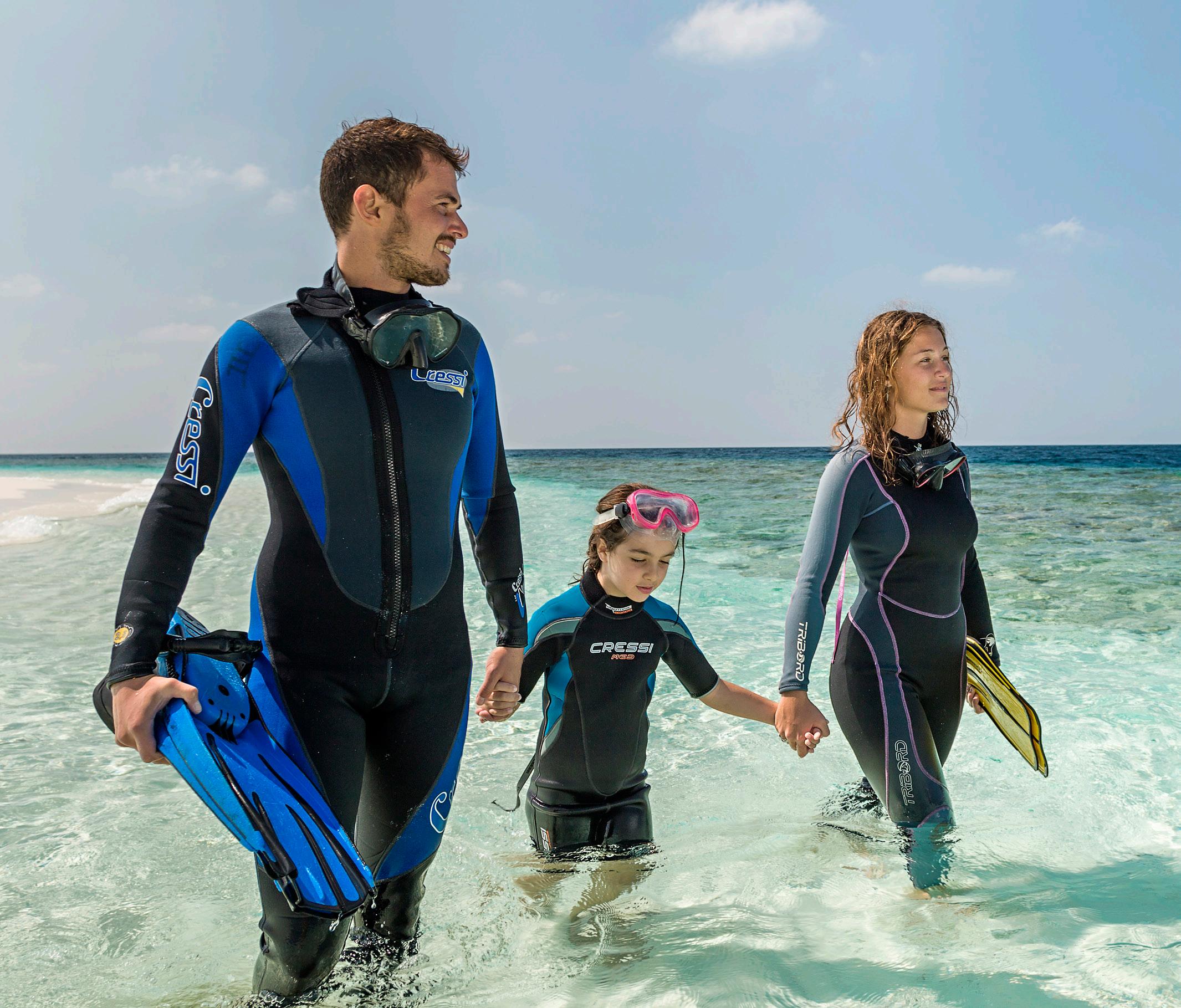3 minute read
Diving into Physiology and Medicine
TAKE A PLUNGE INTO THE DAN EUROPE INTERNSHIP 2022
FEATURE GIUSEPPE DI TURSI

Every diver throughout his training has been exposed to the fascinating notions of diving physiology and medicine. In this regard, DAN Europe strives to conduct cutting-edge scientific research while promoting safety culture thanks to a variety of initiatives involving the community and inspiring the new role-players.
The 2022 DAN Europe internship has been a sensational success from this standpoint. Interns’ background was very broad, ranging from biology, conservation, medicine, engineering, nursing, biotechnology and neuroscience. The cooperation with the students of the Bachelor in Diving and Safety Management and the accessibility to the recent advancements in diver’s telemonitoring technology have been the added values to this edition.

The internship was held at the Institute of Tourism Studies on the island of Gozo, Malta, and spread out over two-weeks with lectures, conferences and practical training.
The first week started with an overview of DAN Europe’s departments and organisation, past and upcoming projects with a particular focus on the Hazard Identification and Risk Assessment (HIRA) programme, accompanied by the DAN Basic Life Support & Defibrillation (BLS-D) training. This was followed by a series of talks on applied diving physics and pathophysiology fundamentals, saturation diving, diving ergonomy, underwater analogue space missions, nitrogen narcosis and telemedicine in diving.

The second week has seen the group trained on the subclavian (O’Dive device) and precordial Doppler technique. This latter was used both on surface and underwater during the organised diving research sessions as a means to detect bubbles in the blood flow after the dive. Urine specific gravity via a portable refractometer and body composition estimation through bioelectrical impedance analysis were also collected and all data uploaded on the Diver Safety Guardian website, together with the dive profiles. The portal is able to return feedback in terms of dive risk analysis, whereas the rest of the medical data are used by DAN Europe’s personnel for further research.
The newly developed diver’s telemedicine prototype has also been deployed and tested. The system comprises a smart t-shirt to be worn under a dry suit which is able to monitor heart rate and diver position underwater, a specifically designed device attached to the diver linked to the shirt via Bluetooth, an acoustic modem allowing this latter to communicate with a surface buoy which, via a simple smartphone, would eventually send data online and is viewed at the surface.

The solution has engaged DAN researchers and the candidates in captivating discussions, especially around the possible introduction in the near future of additional parameters to follow-up. Amongst all, the seismocardiogram, a signal reflecting the heart mechanics and being studied on divers by the research group led by prof. Caiani at Politecnico di Milano, has raised particular interest as statistics show that about one-third of all diving accidents are due to an acute cardiac event.
At the end of the programme, participants continued to collect Doppler recordings on their own personal dives, enriching the DAN Europe database.
The 2022 DAN Europe internship has gone beyond expectations, significantly contributing to sensibilise the community to be prepared for an era of innovations which diving has never seen so far. Divers turned into data collectors, personalised decompression and telemedicine in diving are only some of them. Stay tuned!

